Even though it is not a drug or alcohol, gambling can become the focus of an addiction.
Just like with heroin, cocaine, or opioids, individuals can gamble to such an extent that they develop obsessive behaviours surrounding it and cannot stop themselves.

When an individual gambles, the brain undergoes complex changes in its chemical and hormonal activity.
Placing a bet increases heartrate and excites us, and when an individual wins money, they experience a spike in dopamine production in the brain.
Dopamine is a drug strongly associated with feelings of pleasure. When we win, our brains take note of the effect that it has in its reward system.
As we do it more and more, the brain comes to consider gambling as a source of pleasure.
It therefore prompts an individual to gamble again, and again, and again, until it becomes so used to the high levels of dopamine that it struggles to match this production in everyday life.
Individuals then feel a craving to gamble again, and they have become addicted.
Gambling addiction is classified as a behavioural addiction, and such dependencies are recognised as having very similar effects on the brain as substance-related addictions [1].

Not everyone is at equal risk of developing a dependency on gambling.
There are recognised risk factors which, while not responsible for the inevitable development of addictions, can subtly influence how individuals engage with gambling.
At Rehab 4 Addiction, we offer free advice about gambling addiction rehab from a team of non-judgemental professionals. Many of whom are in recovery and understand how hard can be to change your relationship with addiction.
Simply reach out to our 24/7 confidential hotline on 0800 140 4690.

Genes influence our body and brain development, and how we are put together can have a big influence on how we respond to gambling.
Certain individuals can be predetermined, for example, to have higher dopamine spikes when they gamble.
These people can have a higher susceptibility to cravings for dopamine, or have a greater chance of experiencing emotional lows following such a high.
Of course, if an individual strictly controls their gambling, no amount of genetic information can force them to become addicted.
Instead, our DNA subtly influences how our brain reacts to gambling, slightly increasing certain people’s odds of becoming addicted.

The world we perceive as children can have a large influence on how we experience life as adults.
Environmental factors can shape our thoughts, attitudes, and beliefs surrounding gambling, and these can have a knock-on effect on our behaviour.
If we are raised, for example, by a family who gamble a lot, talk about gambling as though it is a normal thing to do, or hide/downplay the negative effects of gambling.
This kind of behaviour can mean that people are more likely to also take part in addictive behaviours and require gambling addiction rehab later in life.
At Rehab 4 Addiction, we offer free advice about gambling addiction rehab from a team of non-judgemental professionals. Many of whom are in recovery and understand how hard can be to change your relationship with addiction.
Simply reach out to our 24/7 confidential hotline on 0800 140 4690.

Regardless of our relationship with gambling as young people, adult life can play a major role in how we engage with it on a day-to-day basis.
Research indicates that there is a relationship between gambling and individual experience of stressful life events [2].
Intense work schedules, demanding family routines, sudden bereavement and emotional instability can influence our chances of turning to addictive behaviours.
All of these aspects of life can push individuals to crave the dopamine high of gambling as a way to cope.
Additionally, if an individual experiences social isolation, they might visit casinos or betting shops as a way to socialise with others and get out of the house.

Dual diagnosis – the co-existence of addiction and another mental health condition.
This is a really important aspect of gambling addiction, both in terms of treating the condition and determining its cause.
Those who suffer with anxiety, depression, trauma, bipolar disorder, or another mental health condition that causes negative symptoms, are at higher risk of developing gambling addiction.
This stems from the way that gambling-produced dopamine can sedate such symptoms and provide temporary relief.
Individuals with these conditions, therefore, will have more incentive to gamble regularly, forging a reliance on gambling as a coping mechanism.

Our friends, family, and colleagues can influence our behaviour more than we might realise.
If gambling is a recreational activity that you occasionally participate in with them, these relationships can have direct and indirect impacts on your behaviour.
In order to fit in or avoid standing out, an individual can gamble more frequently or with larger amounts of money without consciously realising.
Also, peer pressure can affect us a lot, and we can gamble more to satisfy friends or family who are imploring us to do so.
At Rehab 4 Addiction, we offer free advice from a team of non-judgemental professionals. Many of whom are in recovery and understand how hard can be to change your relationship with addiction.
Simply reach out to our 24/7 confidential hotline on 0800 140 4690.

Gambling can be enjoyed without it developing into an addiction. Individuals can have fun with their friends, gamble some money, and go home again.
How, though, are you supposed to recognise the difference between fun and addiction?
Identifying the signs of gambling addiction can be pivotal for getting yourself or someone you care about into gambling addiction rehab.
The most common to look for include:
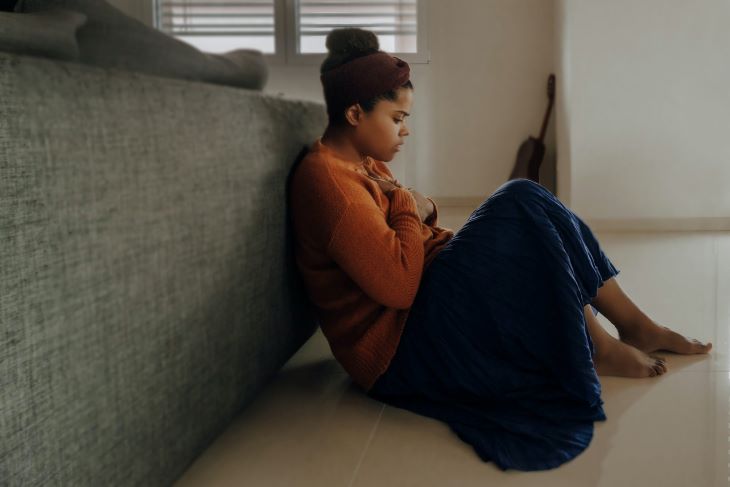
It is easy to consider gambling addiction almost like a lesser form of addiction when compared with substance-related conditions.
However, just like alcoholism or heroin addiction, gambling disorders can devastate an individual’s life.
At Rehab 4 Addiction, we offer free advice about gambling addiction rehab from a team of non-judgemental professionals. Many of whom are in recovery and understand how hard can be to change your relationship with addiction.
Simply reach out to our 24/7 confidential hotline on 0800 140 4690.
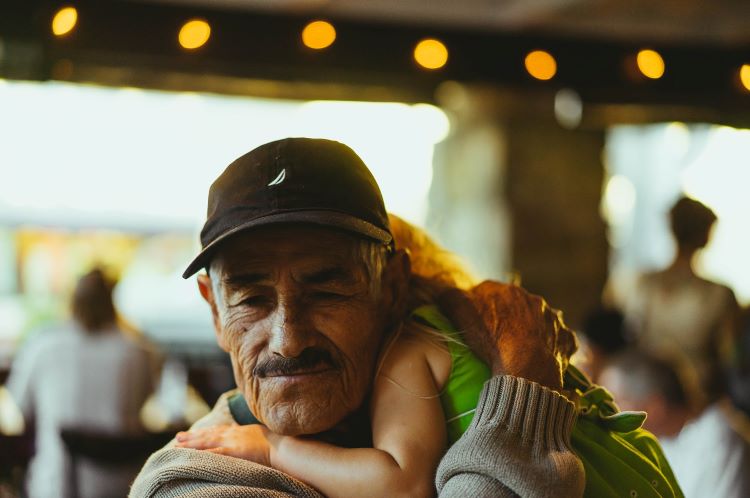
For an individual, the greatest effects will be directed at their mind.
Like any obsessive behaviour, gambling consumes their behaviour and lifestyle, becoming the one and only thing they think about.
Such a habit has destructive effects for emotional wellbeing.
Those addicted to gambling are going to face intense emotional fluctuations.
They are likely to experience strong bouts of anger, anxiety, sadness, shame, hopelessness, panic, guilt, regret, and suicidal thoughts.
And cognitive faculties will not be spared either.
Concentration, memory, and rational thinking can decline with such a dogmatic focus on gambling occupying the brain.

While it might seem impossible since no actual substance is entering the body, gambling addiction can have an effect on the physical body as well.
Those suffering with gambling addiction are at increased risk of having poor sleep, developing insomnia, and having poor appetite.
Research also points to a strong relationship between gambling addiction and the development of substance abuse disorders [3].
At Rehab 4 Addiction, we offer free advice about gambling addiction rehab from a team of non-judgemental professionals. Many of whom are in recovery and understand how hard can be to change your relationship with addiction.
Simply reach out to our 24/7 confidential hotline on 0800 140 4690.

It is essential to consider the family and how they suffer as a result of gambling addiction.
Such intense and consistent gambling can lead to damaged relationships, divorce, emotional problems with children, and financial trouble.
In order to pay for gambling, individuals can steal from family savings, putting everyone at a disadvantage.
At Rehab 4 Addiction, we offer free advice about gambling addiction rehab from a team of non-judgemental professionals. Many of whom are in recovery and understand how hard can be to change your relationship with addiction.
Simply reach out to our 24/7 confidential hotline on 0800 140 4690.
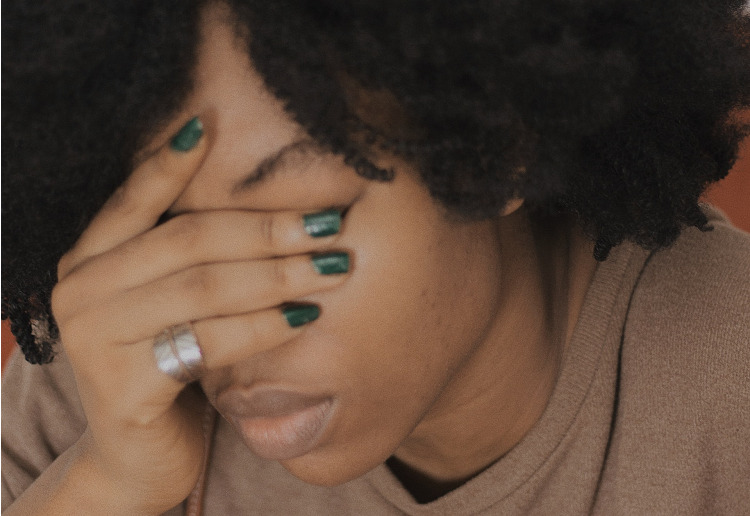
There is a clear relationship between gambling and mental health.
Known as dual diagnosis, the co-existence of a gambling disorder and another mental health condition affects most people suffering from obsessive gambling [4].
But there are two ways in which these two things can relate. Firstly, gambling is more likely to develop when an individual struggles with their mental health.
The pleasurable hormones released during gambling sedate the brain and calm negative thoughts and feelings.
Secondly, mental health conditions can be brought on by obsessive gambling.
The lows experienced after gambling, as well as the distress of finding money to gamble with, can bring on intense spells of anxiety, depression, and panic.

Behavioural addictions can mingle with substance use disorders in complex ways.
The two can co-exist, with each being capable of triggering the development of the other.
If gambling develops first, the anxiety and panic brought about by losing high amounts of money can push individuals to drink or do drugs as a way to cope.
Alternatively, if substance abuse develops first, individuals can be steered into obsessive gambling as they attempt to get the money to sustain their addictive habits.
At Rehab 4 Addiction, we offer free advice about gambling addiction rehab from a team of non-judgemental professionals. Many of whom are in recovery and understand how hard can be to change your relationship with addiction.
Simply reach out to our 24/7 confidential hotline on 0800 140 4690.

When an individual begins gambling at an excessive and obsessive rate, they are in need of treatment. This comes in the form of gambling addiction rehab.
Much like that provided to treat substance abuse, gambling addiction rehab seeks to alleviate the demand individuals feel to gamble.
The facility seeks to give them the independence to live their lives without the weight of addiction bringing them down.
At Rehab 4 Addiction, we offer free advice from a team of non-judgemental professionals, many of whom are in recovery and understand how hard can be to change your relationship with addiction.
Simply reach out to our 24/7 confidential hotline on 0800 140 4690.
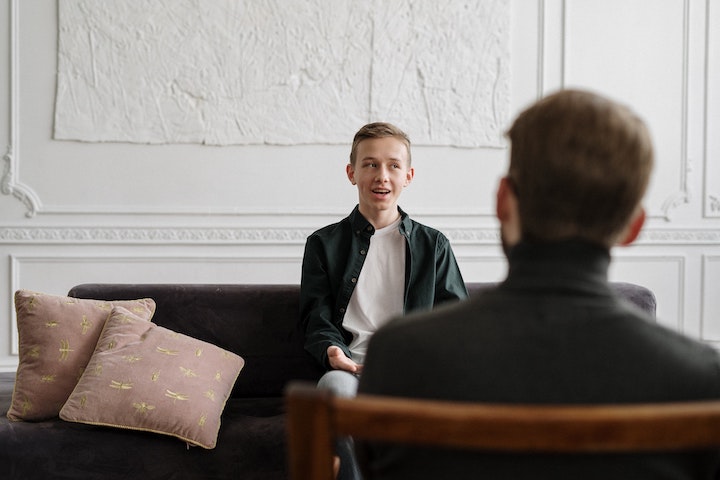
Unlike substance use disorders, gambling addiction treatment does not incorporate an initial stage of detox.
There is no physical dependency to treat, and so gambling disorder is approached only on a psychological level via therapy.
Gambling addiction therapy targets the triggers lying beneath an individual’s repetitive behaviour.
This will shine light on what the root causes of the problem are, what causes them, and how they manage to dictate behaviour.
Whatever an individual’s personal motivation for gambling so much, therapy can adapt its structure and approach to help them work through it and develop healthier habits of thinking and behaving.
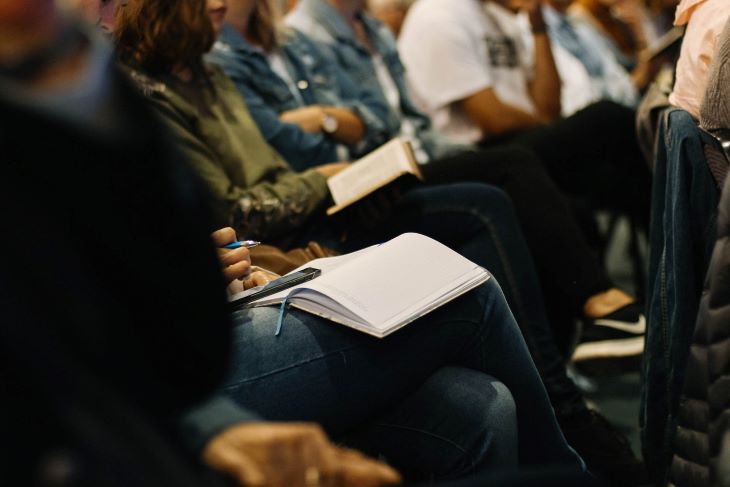
People can be pushed into obsessive gambling for a wide range of reasons.
Therapy must be able to shape and adapt itself to approach such a diversity of motivations in order to be effective.
As a result, there are a lot of therapy options to choose from.
At Rehab 4 Addiction, we offer free advice about gambling addiction rehab from a team of non-judgemental professionals. Many of whom are in recovery and understand how hard can be to change your relationship with addiction.
Simply reach out to our 24/7 confidential hotline on 0800 140 4690.
Focusing on the thought patterns and logic which individuals fall into time and time again, CBT tries to help individuals think and behave differently.
It seeks to highlight how current ways of thinking consistently lead to gambling and provide alternatives.
Gambling can often be a distraction from or coping mechanism for difficult emotions.
Using conversation, DBT helps individuals develop healthier ways of talking about and processing their anger, regret, or sadness without relying on gambling.

Relationships with parents, siblings, and partners can push people to see gambling as their escape.
Family therapy brings such relatives together to talk about their differences, alleviate tensions, and work out how to avoid pushing an individual back into gambling.
Sometimes the route to unlocking a gambling addiction lies in improving an individual’s overall attitude and mindset.
Using activities like art, music, and exercise, holistic therapies strive to improve wellbeing and offer individuals alternative ways of feeling good.
Putting individuals into a room with other recovering gamblers can work wonders.
Sharing experiences, motivations, and stories of recovery, individuals can gain new perspectives about the rehab process and become more optimistic and motivated by the group.

Prevention is the best way to limit the impact of gambling addiction on your life.
Rather than going through weeks and months of recovery, consider some of the following tips and prevent the condition from developing in the first place:

Undergoing gambling addiction rehab can take one of two routes.
Individuals can either enter a rehab facility and go through treatment while remaining within provided accommodation, or they can attend regular outpatient sessions.
Both of these options have their advantages, and comparing these is the most effective way of determining which road to recovery is the most suitable for you.
At Rehab 4 Addiction, we offer free advice about gambling addiction rehab from a team of non-judgemental professionals. Many of whom are in recovery and understand how hard can be to change your relationship with addiction.
Simply reach out to our 24/7 confidential hotline on 0800 140 4690.

Inpatient gambling addiction rehab has the benefit of around-the-clock support.
Individuals are never without someone to talk to, and since they don’t return home between sessions there is little to no risk of them relapsing and slipping back into excessive gambling.
In addition, individuals within treatment facilities are surrounded by other people going through the same kind of process.
They are never alone in their experience, and talking to others can be great for motivation, morale, and a sense of belonging.

Outpatient gambling addiction rehab is flexible, meaning individuals can play a much more decisive role in what their recovery looks like, boosting their sense of autonomy.
Sessions can adapt week by week, taking into consideration what obstacles an individual is facing.
Attending regular meetings also leaves individuals unbound by strict rules and deadlines.
They can work, socialise, and continue living at home while fighting their addiction, granting them a greater sense of comfort and motivation.
At Rehab 4 Addiction, we offer free advice about gambling addiction rehab from a team of non-judgemental professionals. Many of whom are in recovery and understand how hard can be to change your relationship with addiction.
Simply reach out to our 24/7 confidential hotline on 0800 140 4690.

Completing gambling addiction rehab is a huge achievement.
Kicking the habit is cause for celebration and joy, but by no means does it mean that individuals can stop battling their condition.
Yes, the hardest part is over, but a very important chapter is yet to begin.
After rehab, individuals return to normal life and, alongside that, all of the addictive triggers that exist there.
Trying to stay strong and stay true to the values they have learned in treatment can be really hard, so utilising aftercare services can make all the difference.
These services can help individuals continue to make progress in understanding and combatting their triggers.
It can prove even more useful than their initial therapy as they can try techniques in real life and strive to find the most suitable and effective for them.

It is perfectly natural to want to help a loved one who is struggling with a gambling disorder.
It must be clarified, however, that there is a fine difference between helping someone’s gambling and enabling someone’s gambling.
Enabling is when you do things you believe are improving your loved one’s situation, but are only improving their capacity to continue gambling at an unhealthy level.#
At Rehab 4 Addiction, we offer free advice about gambling addiction rehab from a team of non-judgemental professionals. Many of whom are in recovery and understand how hard can be to change your relationship with addiction.
Simply reach out to our 24/7 confidential hotline on 0800 140 4690.

When a loved one is in such distress, you might want to comfort them and contextualise their behaviour for them.
It might seem helpful to, for example, blame their gambling on how much stress they’ve been under at work, or their recent poor mental health.
But rather than helping them, this gives your loved one justification for their gambling.
This can cause them to continue under the pretence that they somehow ‘deserve’ to gamble given what they’re going through.
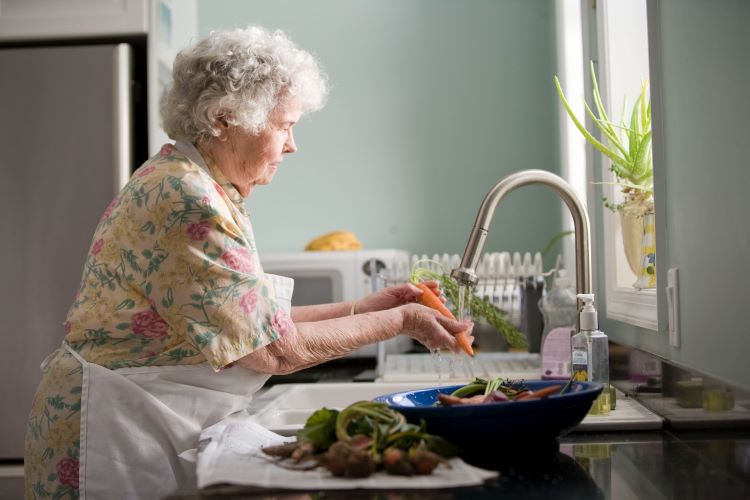
No one wants to see their loved one struggling at work, school, or at home.
A huge impulse might be to lend them support in these areas, and in some cases take over their responsibilities so that they have less to stress out about.
Again, this only reduces the pressure they feel to stop gambling.
Without things to do, they will feel free to continue with their habit, and if you support them financially, they might consider it viable funds to gamble with.
At Rehab 4 Addiction, we offer free advice about gambling addiction rehab from a team of non-judgemental professionals. Many of whom are in recovery and understand how hard can be to change your relationship with addiction.
Simply reach out to our 24/7 confidential hotline on 0800 140 4690.

Gambling can cause a lot of tension. Your loved one’s behaviour might get them into disagreements with friends and create problems where they owe people money.
Being unable to manage money can even cause legal complications as a result of debt.
Facing these problems can be really stressful, and you might feel obliged to ease tensions, pay off debts, or resolve legal issues on their behalf.
With this clean slate, however, individuals can feel like there is nothing between them and gambling.
Without debts, they may feel obliged to take out loans to gamble with, and if no one is showing animosity to them, they can gamble with even more comfort than before.

In order to actually help a loved one struggling with gambling, you will need to show a bit more restraint in your support.
This can be really hard to get right at first, but it will be better in the long run.
As hard as they might seem to pull off, here are some of the best things you can do to help your loved one:
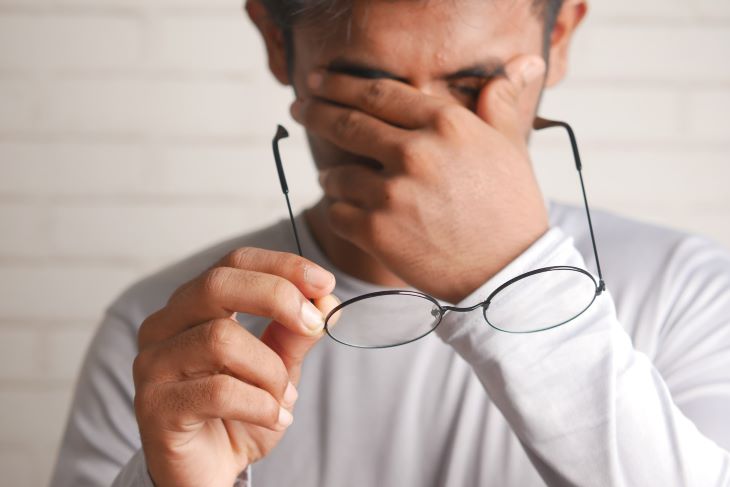
As with combatting any form of addiction, there are things that get in the way of individuals admitting and facing up to their gambling problems.
Having an awareness of these obstacles can help both in acknowledging why someone won’t seek help and pushing past them.
Some of the biggest obstacles to individuals getting gambling addiction rehab include [5]:

There are a lot of obstacles standing between individuals and gambling addiction rehab.
Admitting to the problem, finding the right support, and starting treatment are each huge steps to take, but it is important to remember than none need to be taken alone.
When it comes to gambling support, Rehab 4 Addiction are here with all of the information and support that you need.
We have advice, treatment options, and open ears for all of your doubts and fears.
Don’t let gambling addiction control another day of your life, and get in touch with us on 0800 140 4690.
[1] https://www.ncbi.nlm.nih.gov/pmc/articles/PMC4458066/
[2] https://www.ncbi.nlm.nih.gov/pmc/articles/PMC8388113/
[5] https://www.rcpsych.ac.uk/mental-health/problems-disorders/gambling-disorder